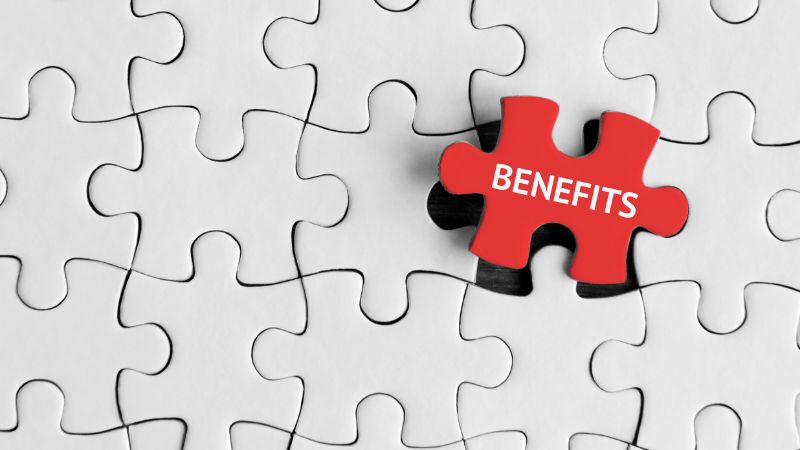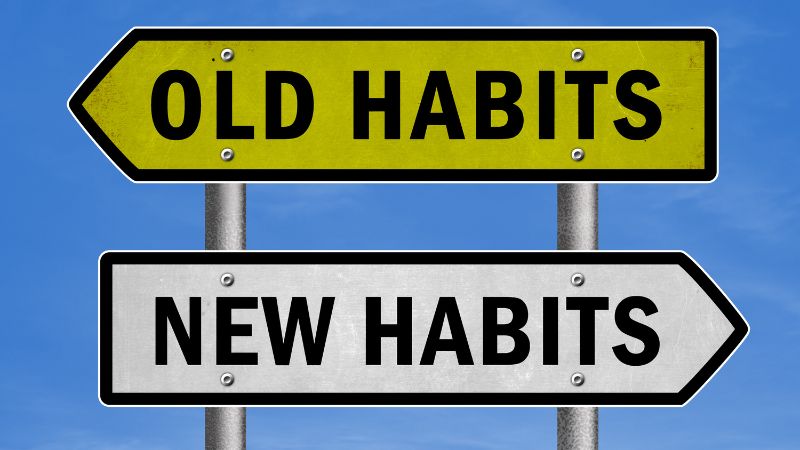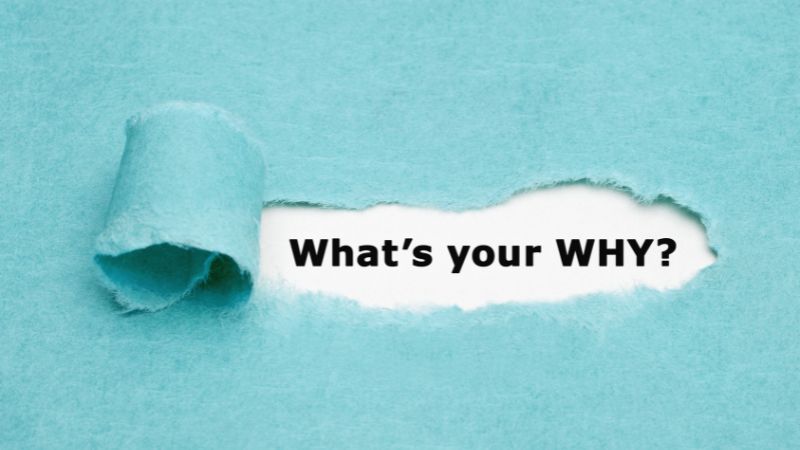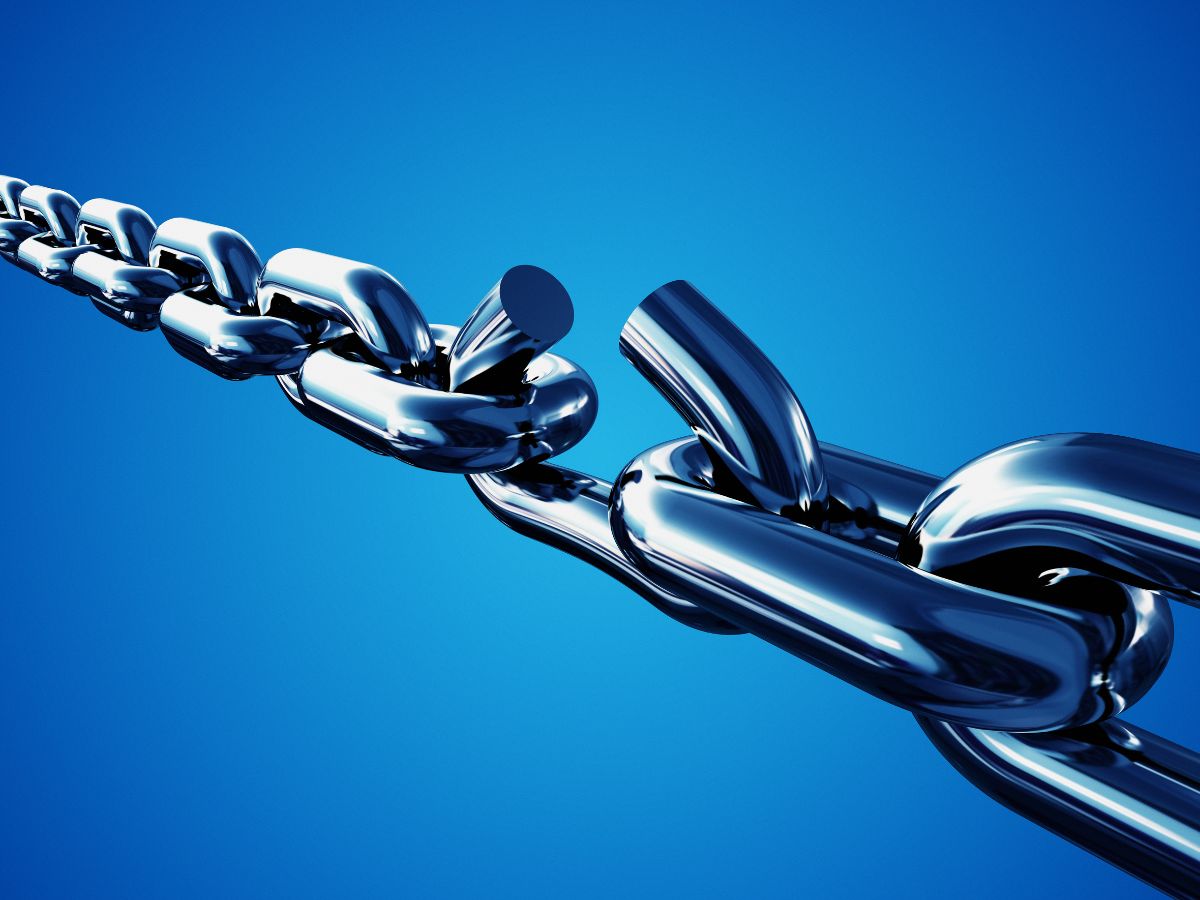READ TIME: 10m
DR JOHN DEMARTINI - Updated 11 months ago
In the journey toward personal development and self-mastery, the challenge of breaking old habits and fostering lasting new ones and change is a theme that surfaces time and again. The common thread? An expressed desire to overcome habits that seem unbreakable, despite repeated efforts to change.
The conventional approach to helping you break or change habits often emphasizes willpower, discipline, and attempting to intentionally stop any perceived undesirable behaviors. However, in my experience, I believe there to be a key dimension to this process that is often overlooked, yet one that can be pivotal in your journey towards self-mastery.
Here it is:
Every decision you make is based on what you believe, consciously or unconsciously, is going to give you the greatest advantage over disadvantage at that moment or over time.
You may want to read that again.
As such, when someone tells me, "I need to break this habit," I am likely to do two things:
- Encourage that individual to look at the words they are using. Words such as “should”, “must”, and “need to” are referred to as imperative language. You will most likely use imperatives when you try to inject the values of someone you look up to into your own life. In other words, you’re experiencing internal conflict between what you actually want and what you are spontaneously inspired to do (you develop your expertise in your own highest values) and what you think you “should” or “need to” be doing.
- Prompt that individual to probe deeper beneath the surface by asking them, "What BENEFITS are you gaining from engaging in this habit? Because consciously or unconsciously, you are perceiving that there's more advantage than disadvantage in doing that behavior, or you wouldn't be doing it.”
This can be challenging for people who have bought into the story that they are powerless in the face of temptation, weak, undisciplined, procrastinative and unmotivated. Hearing that they likely are continuing with that habit because that habit is serving them in some ways, can be a lot to wrap their brains around.
In my case, I am asked quite often about weight loss from people who express that they cannot seem to lose weight despite being “desperate” to do so and having tried countless diets over the years. In their words, “nothing works!”
You can imagine their surprise when I tell them that their weight loss likely stems from unconsciously perceiving more upsides than downsides to maintaining their current weight and overeating pattern, despite their health and self-esteem concerns. This paradox means that, deep down, they likely see more advantages than disadvantages to NOT losing weight, which is why nothing appears to be working.
A wonderful example is a lady who asked me to help her lose weight. She told me that she had tried every diet, plan, and technique over the years and had yet to find anything that lasted for longer than a few days or weeks.
So I asked her, “What benefit do you get out of overeating and keep extra weight on?” There was a very long pause, which made me think this was likely the first time anyone had asked her that question.

She eventually replied that she couldn’t think of a single benefit and that she desperately needed help because she couldn’t control her eating.
I asked again, “Hold yourself accountable. What benefit are you getting out of eating and retaining your current extra weight?”
There was another long pause while she gave it more thought.
She finally replied that her whole family was big and that perhaps unconsciously she was afraid that if she wasn’t big, she wouldn’t fit in and feel like a member of the family.
I encouraged her to keep going. She then mentioned how her sister had previously been bigger than her and pushed her around as a child, and that she had made a pact with herself that she would never again be smaller than her sister so she could defend herself.
I asked her to find another benefit, and she immediately became tearful as she related a life-changing event that had happened earlier in her life.
She had embarked on a fasting plan and had dropped 45 pounds. For the first time in her life, a man began paying attention to her and flirting with her. That evening, she met this man who was attracted to her and she to him. She slept with him on that one night. She never saw him again, but later discovered she was pregnant and after much agonizing and deliberating, chose to have an abortion.
This was something completely contrary to her Catholic upbringing, and something she felt great guilt and shame about. As she said, a benefit to continuing to be overweight was that she was no longer attractive to men and was unconsciously protecting herself from going through the most painful situation like that again.
We kept going, and she came up with yet another benefit. She worked in the television industry and was often on camera – but only from the waist up. Carrying more weight meant that her skin was smoother, as opposed to when she lost weight and her skin sagged and made her appear older.
We kept going, and eventually ended up with 75 benefits to her overeating and maintaining a heavier body weight. She stared at me with big eyes as the penny dropped. “So I don’t really have an intention to drop weight the way it's structured right now in my mind?”
It was a life-transforming moment for her when she recognized that she had no real intention to drop weight as her actions were driven by these unconscious motives. This realization prompted us to explore ALTERNATIVE ways to achieve those SAME benefits without relying on food and weight gain, while also aligning her new, more viable actions with her highest values.
I love to use this example to illustrate what I believe to be a profound truth: every habit, no matter how detrimental you perceive it to be on the surface, serves a conscious or unconscious purpose.
Or, as one individual put it, “People do what works.”
To reiterate the point, that habit that you may find challenging to break most likely meets a need or fulfills a desire, often linked to your deepest fears, insecurities, or unmet needs. Acknowledging this doesn't mean condoning the behavior but rather and bringing it to the surface and understanding it.
The path to lasting change, therefore, involves not just stopping any unwanted behavior but also the discovery of ALTERNATIVE BEHAVIORS that can fulfill the same unconscious needs in healthy and viable ways.

So, instead of viewing them solely as behaviors to be eradicated, it is wise to see them as indicators of deeper needs and drives. This involves taking a deep dive into your values, getting clear on what intrinsically drives you, and any conscious or unconscious benefits you’re getting from the habit you’re trying to shift.
By identifying these benefits and then providing viable alternatives that align with your unique set of highest values, the probability of adopting new, congruent and viable behaviors significantly increases.
To sum up so far: When you express the desire to break a habit, it's wise to recognize that, at some level, this habit is providing more perceived benefits than drawbacks otherwise you wouldn’t keep doing it.
This realization may at first seem counterintuitive, especially when it comes to what some call substance abuse, a habit that, at first glance, may appear to be solely detrimental. However, the same theory applies -despite the apparent negative consequences, if an individual perceives more advantages than disadvantages to using the substance, they are likely to keep doing it.
Identifying these advantages and bringing any unconscious motives to light is often the first step in helping them become aware that they are actually in control and not at the mercy of their so-called uncontrollable habit.
However, the challenge doesn't stop with identifying the advantages of the new behavior. Life is filled with examples of people who temporarily adopt new behaviors for short-term goals, only to revert to old habits once the goal is achieved.
A powerful key to changing or modifying behavior lies in stacking up new associations - aligning the advantages of a new, desired behavior against the disadvantages of the current, assumed to be, unwanted habit.
To instigate lasting transformation, it's wise to find alternative ways to meet these needs, ways that are then aligned with your highest values and priorities.
For example, during a session with you, the process we would go through would look something like this:
- Identify your unconscious motives and understand the benefits you are getting from your current behavior.
- Seek viable alternative methods to achieve those same benefits.
- Stack up the advantages of these viable alternatives until they outweigh the benefits of your current behavior.
- Assess the drawbacks of the behavior you want to change, emphasizing them until they become associated with pain, while associating pleasure with the alternative.
This process helps to neuroplastically rewire your brain by forming new associations and altering synaptic pathways.
It is also wise to have a compelling REASON for change. As I often say, when your "why" behind it is strong enough, the "how" will naturally follow.
The opposite also tends to apply – if you don’t have a significant reason for breaking a habit or changing a particular behavior, this may hinder your progress.

As such, attempting to change your habits may be met with internal resistance, not from a lack of consciously wanting to change, but instead from a misunderstanding of the true drivers of your unconscious behavior.
In my signature 2-day program, the Breakthrough Experience, which I teach most every weekend, the focus is on helping you uncover any unconscious motives, balance your perceptions, and take command of your brain's associations. This process also helps you increase the likelihood of engaging in behaviors that align with your highest values and true priorities.
To Sum Up
If you would love to break, quit or change habits, then the following 10 steps below may be of value:
- Acknowledge Hidden Benefits: Recognize that every habit likely serves a purpose, providing benefits that might not be immediately obvious to you.
- Uncover Unconscious Motives: Delve deep to uncover the unconscious reasons behind persistent habits to understand their true role in your life.
- Identify Alternatives: Identify new behaviors that can fulfill the same needs or offer similar benefits without the perceived drawbacks of the current habit.
- Create New Associations: Use the power of conditioned reflexes to associate new behaviors with benefits (pleasure) and old habits with drawbacks (pain).
- Align Actions with Values: Ensure that your actions and the changes you would love to make are congruent with your unique set of highest values, and not someone else's.
- Embrace Self-Discovery: View the journey of habit change as an opportunity for self-discovery, growth, and transformation.
- Seek Meaningful Engagement: Fill your life with high-priority, inspiring activities to reduce low-priority distractions.
- Harness Your Power: Recognize and harness the power within you to make changes, relying on your internal values and priorities rather than external comparisons.
- Consider the Breakthrough Experience to gain insights, tools, and support for mastering your mind and thereby your life.
No matter how hard you try to empower your life, you’ll likely still feel frustrated by your perceived lack of progress and achievement if you’re unaware of your own highest values and you keep trying to live by somebody else’s values. Your set of values influence every aspect of your perceptions, decisions, and actions.
It’s only when you get clear on what’s most important to you (what’s highest on your values), and you build your life around that, that you take the handbrake off on your life and finally start to see the progress and results you desire.
If you are inspired to clarify the most important areas of your life to focus on so you can nurture the authentic version of you, take the free confidential Value Determination online assessment on my website.
Alternatively, register for my next Breakthrough Experience program so I can help you work through the process!
Are you ready for the NEXT STEP?
If you’re seriously committed to your own growth, if you’re ready to make a change now and you’d love some help doing so, then click on the LIVE chat button bottom right of your screen and chat to us now.
Alternatively, you can book a FREE Discovery call with a member of the Demartini Team.
Interested in the Breakthrough Experience seminar?
If you’re ready to go inwards and do the work that will clear your blockages, clarify your vision and balance your mind, then you’ve found the perfect place to start with Dr Demartini at the Breakthrough Experience.
In 2 days you’ll learn how to solve any issue you are facing and reset the course of your life for greater achievement and fulfillment.
Click HERE to find out more
Important Notice:
The content shared in this blog is for education and personal development. It is not intended to diagnose, treat, cure, or prevent any psychological or medical conditions. The information and processes shared are for general educational purposes only and should not be considered a substitute for professional mental-health or medical advice. If you are experiencing acute distress or ongoing clinical concerns, please consult a licensed health-care provider.
Read full disclaimer HERE









